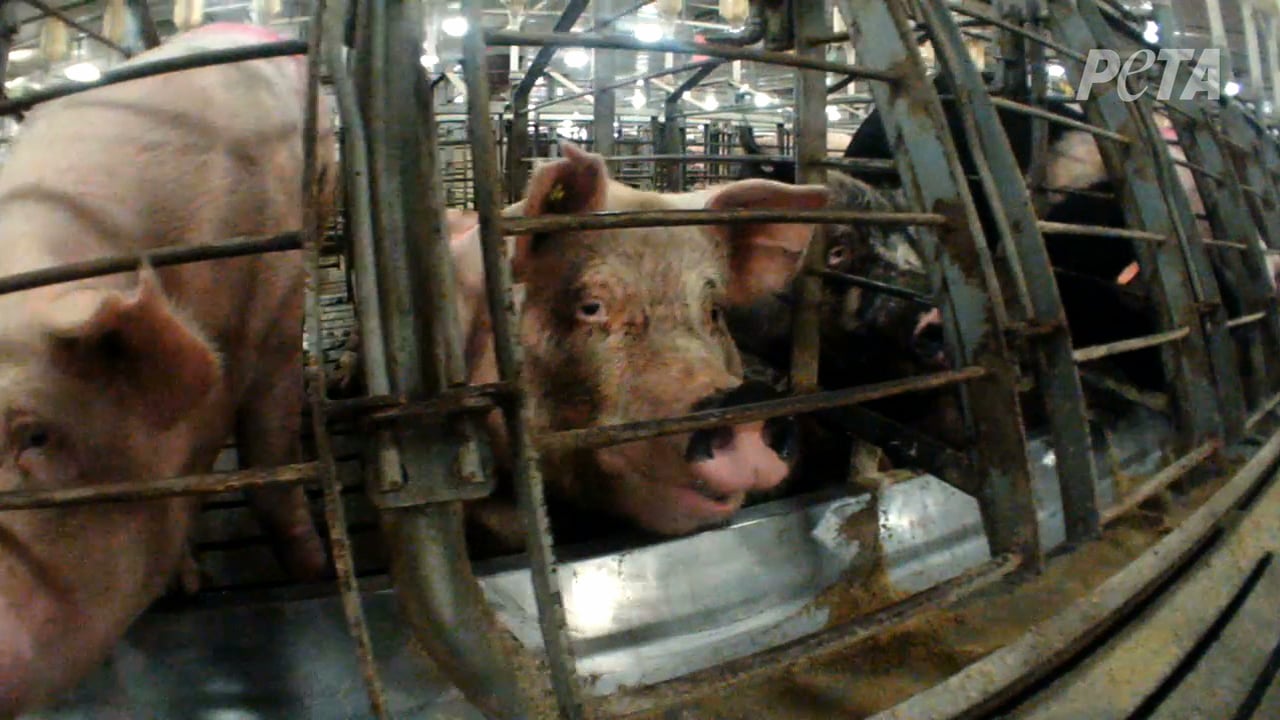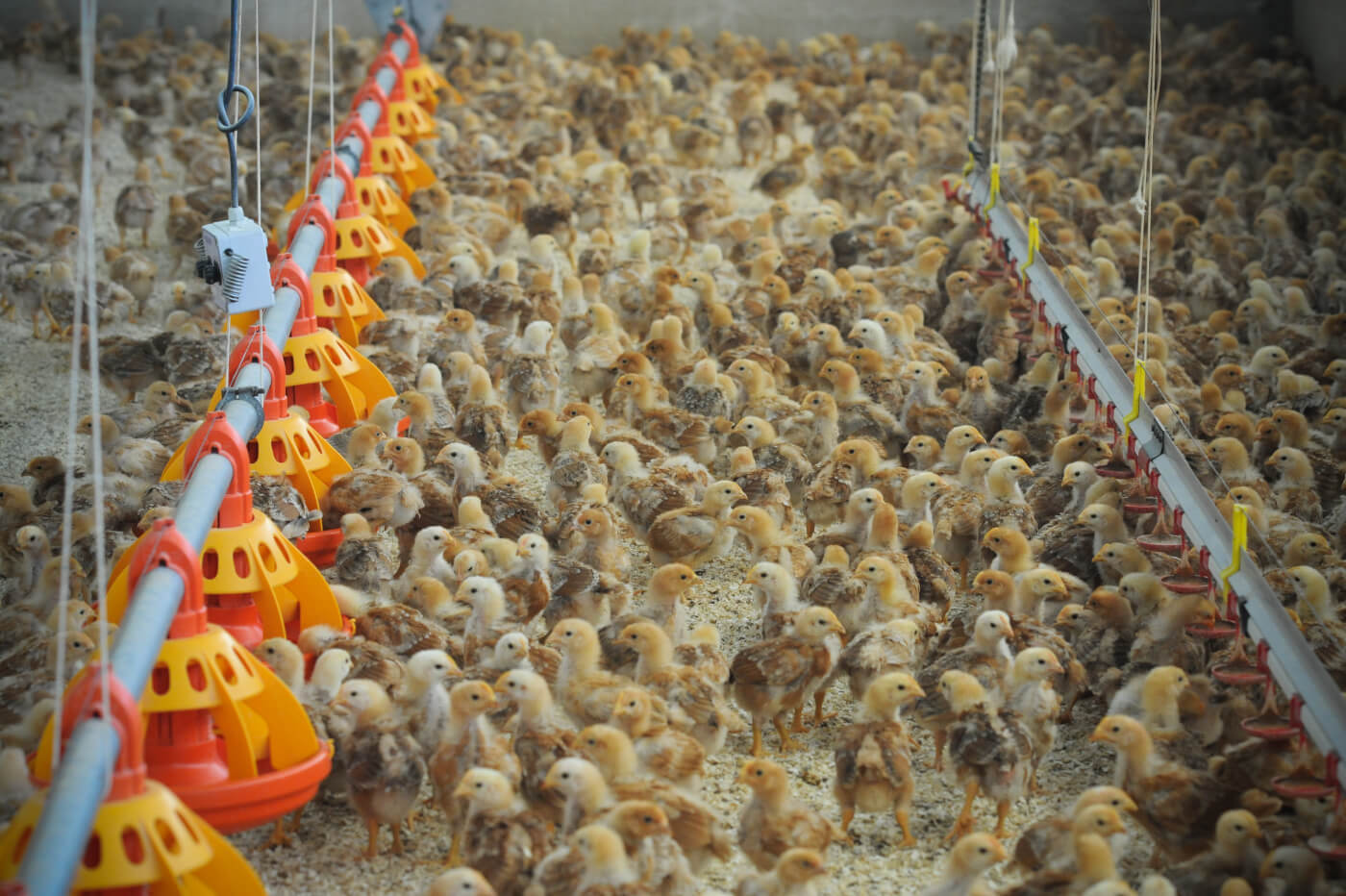Animal Rights vs. Animal Welfare
Since its founding in 1980, PETA—the largest and most impactful animal rights organization in the world—has been a strong and vigorous force on the front lines of defending our fellow animals from exploitation. Our mission is to end the use of animals for experimentation, food, clothing, entertainment, or any other purpose. So what is animal welfare, and how does it fit into our game plan?
Animals’ Interests
All animals, including humans, have interests, such as comfort, raising their young, and enjoying life. Rights are legal protections for essential interests, including “life, liberty, and the pursuit of happiness,” which U.S. law grants to humans but not to other animals. Animal welfare proponents believe that nonhuman animals have interests (not rights) that can be disregarded as long as there are some benefits to humans that supposedly justify that violation. For more on animals’ interests and why they deserve legal protection, we recommend Peter Singer’s new book, Animal Liberation Now.
Animal Welfare Alone Misses the Point
Of course, we want animals to be treated well, and this is the implicit promise of animal welfare—so why do we say it’s not enough? Animal welfare alone misses the forest for the trees, because “treating animals better” usually accepts widespread human control and exploitation of them from birth to death.

Animals Don’t Exist for Human Purposes
By using animals in horrific, painful experiments; breeding, mutilating, and then slaughtering them to eat or wear; and exploiting them in many other ways, arrogant, greedy humans dominate them through violence, hiding the truth in order to keep society as a whole ignorant, complacent, and complicit. Even though some of us have not directly contributed to the abuses wrought by speciesism, we still have a collective responsibility to dismantle systems of human supremacy.

Recognizing Their Rights Protects Animals
When we focus our activism on animal rights, we acknowledge that animals’ lives, happiness, and well-being have inherent value that has nothing to do with their usefulness to humans. We work to establish these rights in the public consciousness, protect them with laws, and advance toward achieving animal liberation—the freeing of all other animals from human domination.
As animal advocates, we have a duty to improve the world for animals. For PETA, this means extending solidarity and support to projects that provide animals with relief or safety or that otherwise reduce their suffering in the short term, including by advancing animal welfare measures. But PETA will always pursue animal rights and the abolition of speciesism.
Making Your Impact
When planning your own activism, dream big. Plant your goalposts beyond animal welfare and work for the greatest impact you can have for animals. Here are a few ways you can change the world for the better:
Spread the Word!
- Order vegan starter kits and give them to everyone you know who eats animals or their eggs or drinks their milk. You can also get creative by leaving them in waiting rooms, magazine racks, or gyms or by passing them out at local events.
- Set up a table outside a local university or business that tests on animals—PETA will send you literature. And Free the Animals by PETA President Ingrid Newkirk is a great read full of inspiring true stories of daring actions taken against experimenters and their cronies—share it with your family and friends.
- Get crafty. Print our hangar tags and put them on garments, accessories, or home goods made with animal-derived materials and sold by cruel businesses. Doing this lets shoppers know that these items are produced through horrific suffering.
- Use PETA yard signs to spread the animal rights message to your neighbors and passersby.
- Develop a one-minute “elevator pitch” on why going vegan is the right thing to do for animals and deliver it to as many people as you can.
Take Direct Action
- Network with local activists, visit decisionmakers, and attend or organize demos for animals.
- Film and report cruelty to animals when you see it, and do what you can to stop it on the spot.
- Rescue dogs from hot cars.
- Ask venues that host animal rides, live-animal acts, or photo ops with live animals to boot them out. Explain why these activities are abusive to the animals and dangerous to visitors.
Be an Advocate
- Ask local business owners to be more animal-friendly whenever you have the opportunity. Persuade a coffee shop to offer dairy-free creamer or a store to stop selling glue traps. Changes like these might only happen if you push for them.
- Get involved in local politics: Learn about animal issues in your community, and write or call your local representatives to support legislative measures that help animals.
Take Action With PETA
You can also help animals by taking action with PETA. Passionate animal advocates like you can make an enormous difference by speaking up—and our action alerts make that easy. Please take a moment to help animals today:

